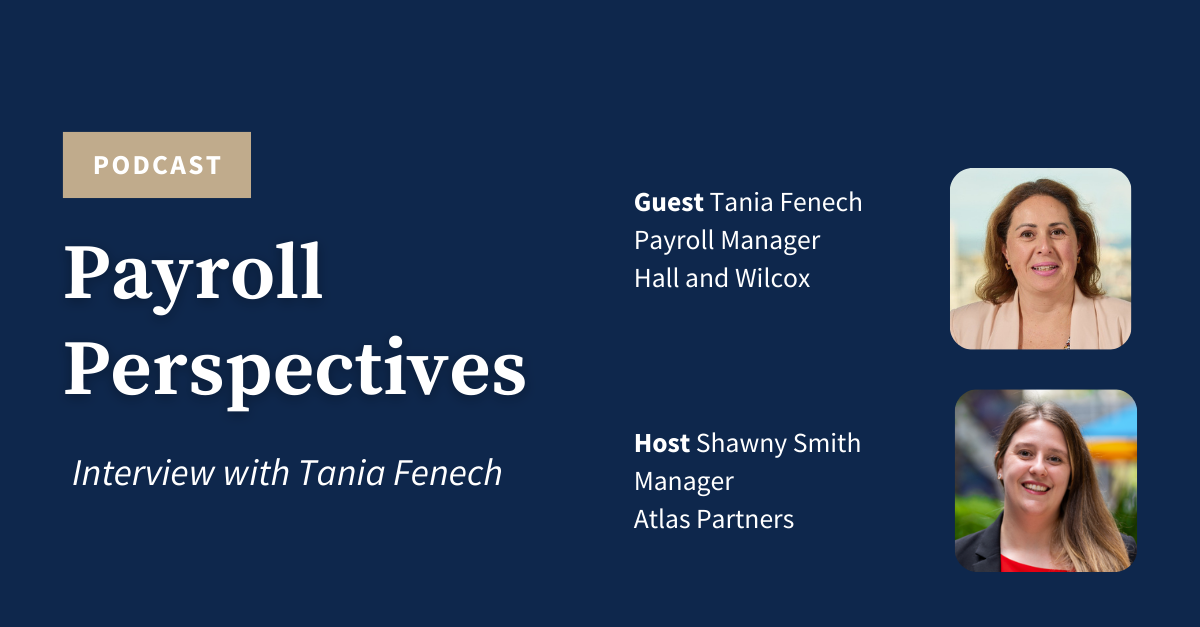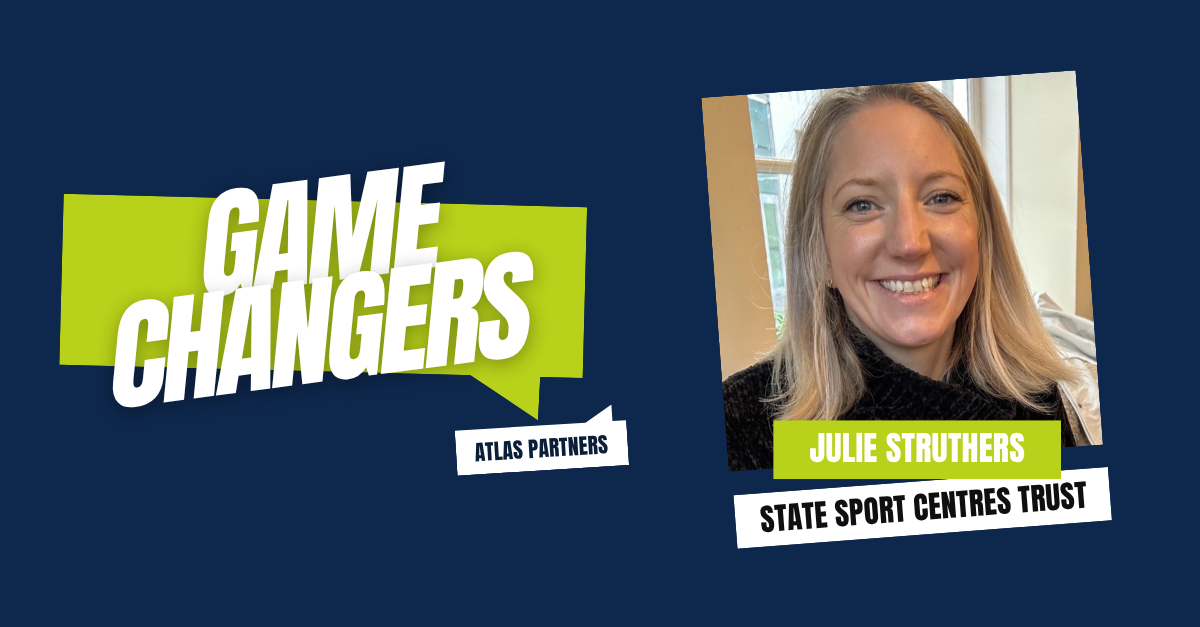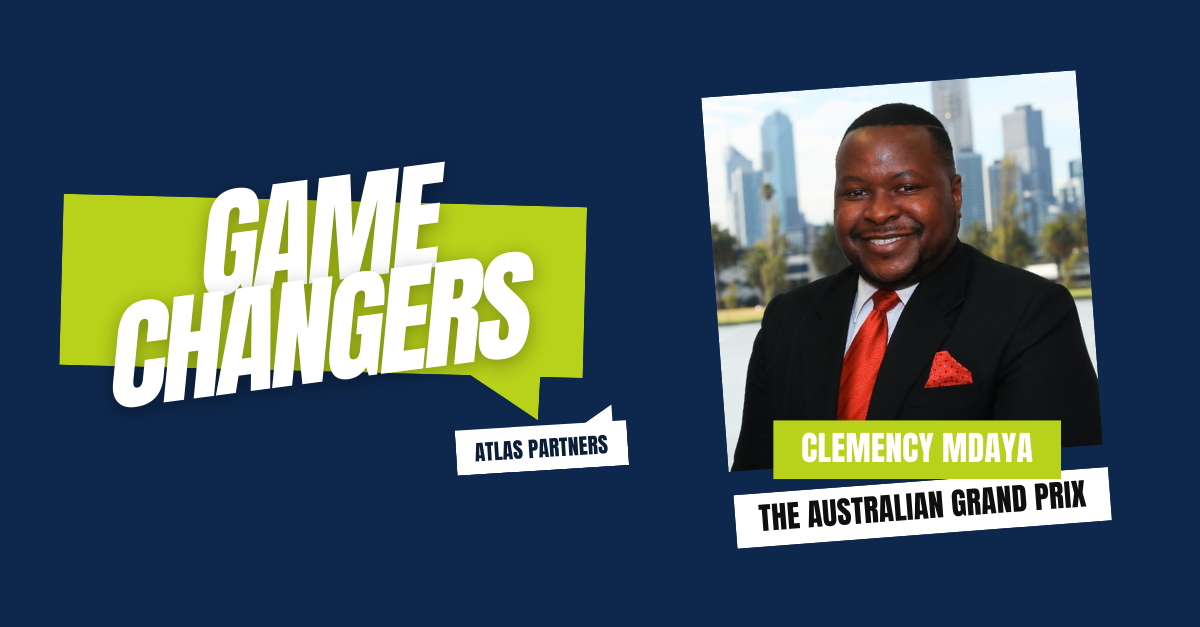Payroll Perspectives — Tania Fenech, Hall & Wilcox
Tania Fenech didn’t choose a career in payroll — it chose her — straight out of school, while she was working part time for Coles. Twenty-five years later, she has built a phenomenal career honing her craft across various industries, leading to become the Payroll Manager at Hall and Wilcox. Tania met with Shawny Smith of Atlas Partners for our Payroll Perspectives podcast.
Shawny: Hi, Tania. Thank you so much for joining me for an episode of the Payroll Perspective podcast.
Tania: No problem. Thanks for having me.
Shawny: No problem. And look, we usually just start off with a brief introduction of yourself, your career, and how you got into payroll, if you want to start there.
Tania: So I guess I’ll be saying what most people say who work in payroll. I didn’t choose payroll. Payroll chose me. So I was actually working part time while I was at Uni for Coles, and an opportunity came up to learn payroll there in the office. So I thought, okay, I’ll see how it goes. You know, do that while I was studying. And, yeah, just from there on, over 25 years later, have stayed in the payroll space. I stayed in that retail space for quite a long time. Then I’ve moved on to food manufacturing, hospitality, aged care, and now payroll manager in the professional services area for a law firm called Holland Wilcox. So have worked in payroll for a very long time, but have also been fortunate enough to have experience in lots of different industries. So, yeah, that’s lots of learning along the way.
Shawny: That was one of my questions as well. I wanted to follow up with you and ask around the different industries you’ve worked in and if you found any of them more complex from a payroll perspectives than the others.
Tania: I think payroll in general, a lot of people seem to think payroll is quite simple. We just push a button and everything happens automatically. But as we all know, payroll is very complex. But I think definitely, depending on the industry you’re working in, there’s that added layer of complexity. So I would probably say aged care was probably the most complex, and that’s because they’re not just a Monday to Friday operation. The caring shifts involve, like, weekends, overnight work, 24/7 shifts, really active overnight shifts, inactive overnight shifts. So very, very, complicated. And I guess, an added layer to that complexity is that there is such a shortage of staff in the aged care industry. And especially, I was working in aged care during the pandemic, and, yeah, because of that shortage of staff, just, seeing that burnout firsthand that the carers were going through, and so, you know, they’d often get frustrated if there were errors with their pay. So, it was really hard to sort of manage that. But, yeah, definitely, I think aged care is the most complex, and you throw in a pandemic on top of that. That’s, very very hard for everyone in that industry.
Shawny: And I 100% agree with you there. And it’s something that I’ve heard in the market as well. I work with a few different aged care and health businesses, and that’s the number one word that I hear is complex, but also the fact that there is a little bit of in and out when it comes to the turnover side of things.
Tania: That was. Yeah, that was really, really challenging. Yes, such a high turnover because of the burnout and the existing employees that were working. Yeah, they were just too many shifts that needed, coverage and, yeah, very, very difficult for everyone.
Shawny: No, I could imagine, especially during COVID times. And look, I’ve heard similar things of the retail industry where it’s quite fast paced and a lot of turnover there, and it has its own kind of challenges, but not as complex when it comes to those kind of allowances.
Tania: That’s right.
Shawny: So I would love to understand a little bit around the different technology and systems that you’ve worked with as well, and if there’s one that stands out to you as a really good system.
Tania: Yeah, well, definitely. Technology has come a long way in the over 20 years that I’ve worked in payroll. At my previous place of employment, I was involved in the system implementation of employment hero, and I found that that was a really good system. Everything was very manual where I was before, lots of manual spreadsheets, etcetera. So having employment hero, we implemented the HR module, as well as the payroll module. So we had that full integration, and that was just a game changer for us. Reduced a lot of those manual touch points, reduced a lot of the potential for human error. And just that employee experience was so much easier, especially as we had the self serve portal, so employees could go in, and rather than using manual leave forms, they could go in onto the app and just submit their leave, submit timesheets via the app. It was just really seamless. But what I also liked about employment hero was the support that they offered. You know, all the support, and the support network was based in Australia, so you weren’t talking to someone in another country with a time delay. You know, they were very responsive if you needed assistance and able to resolve queries ASAP. So, yeah, I found them to be really, really good. But, I mean, I know there’s a lot of good products out there, but my experience with employment hero was really, really positive, especially compared to what I’d used in the past. And any sort of manual process that you can abolish or reduce just reduces that risk of making payroll errors. And at the end of the day, you just want to make sure that we’re paying people correctly and that we’re compliant with all the relevant legislation.
Shawny: And that self-service portal can have a huge impact on pretty much everyone in the business, but especially that payroll side of things, because people can find the information themselves, do a lot of things themselves and then it just reduces the errors or the paper trail, as well, sort of the manual effort it takes and the administration from the HR.
Tania: And payroll team, I guess it’s that burden as well, on payroll, like there’s a common theme when you speak to, you know, payroll professionals. There’s never enough time to get all your tasks done. So if you can save a bit of time here or there, wherever you can save that time, you just need to grab it with two hands because there’s always something else that you can be working on or running audits or compliance checks. Yeah, so having that self serve portal is a non negotiable these days.
Shawny: And I think, too, when it comes to systems where you can have both sides, HR and payroll working together more seamlessly, it definitely is a huge plus. The next question that I had was around the different challenges and changes that we’ve had over the last two years. What would you say has been the biggest challenge for you?
Tania: Well, I think definitely Covid was a huge challenge. Where I was working at the time, we didn’t really have working from home arrangements, so we had to quickly pivot to organize that for the team. Instead of just not being able to work together every day, we had to work out a different way of working. So that was a big challenge. But I guess it’s also just all the changes that are continuously happening, whether it’s changes to STP, wage theft laws that have been introduced, you just really, have to stay on top of everything. You’ve always had to stay on top of changes to legislation, etcetera. But it seems like, almost every week’s there’s something new coming out and if you don’t stay on top of those changes, you’re going to be left behind and open yourself up to risk. We’re all busy in our everyday jobs, you know, managing teams, etcetera. But, if you don’t make that time to keep up with changes and self-development, then you’re just going to open yourself up to risk and possible compliance issues down the track. So I guess it’s just making that time to keep abreast. Otherwise, you’ll pay the consequences down the track.
Shawny: I agree with you there. Probably the biggest challenge that I’ve seen in the market overall is the fact that things have just been changing at an unprecedented rate and the amount that you have to invest in your professional development, compliance, keeping on top of the changes, but also things to come. Like, I know a lot of people are thinking about payday super and things like that. So it’s a lot to think about and it’s a lot to prepare for. And I think it just pushes people to have more resilience, even though this job already takes a lot.
Tania: That’s right.
Shawny: Right. I suppose if we want to talk a little bit more about what makes a great payroll officer, obviously, you were there, you moved into senior position now into management for quite a long time. What would you say are the top three skills that make a great payroll officer?
Tania: Yeah. Well, first of all, I just want to preface by saying it’s really hard to find good payroll people. It always has been hard to find good payroll people, but I just find more and more now, whenever I need to recruit for a new role, it’s always really difficult. We get quite a few people applying, but they just don’t have that right skill set. And I guess to work in payroll, it is a very particular skill set. I’m not always looking to see, has someone completed a payroll course or do they have ten years payroll experience? Because you’re not always going to get that. But I think if we’re looking at the top three skills, having the right attitude to start off with is a huge plus. You know, even if they don’t have that experience, if they’re willing to learn, if they have that thirst for knowledge, they’re already setting themselves up for success. Attention to detail is just so critical. Working in payroll, one little thing that goes wrong, you might think it’s something simple, but that can just have such a huge flow on effect if it’s not done correctly. So that attention to detail just is mandatory. And then I also think being organized, with payroll you’re jumping from one task to another, you might think, oh, yeah, I need to update that rate. I need to update that STP code. Then you’ve got phone calls coming in, you’ve got teams calls, your managers calling you for something. Your team needs you to help them. You need to drop everything and do the most important tasks first. But it’s easy then to forget the little things that need to get done. And then, if you don’t, if you’re not organized and know, for example, when payments are due, when super needs to be paid, if you leave things to the last minute, you’re just going to set yourself up for a world of pain. So having really good organizational skills are really important as well in order to succeed.
Shawny: I agree with all those points. I think the right attitude, the right resilience and adaptability, even if they haven’t been in payroll before, can be a huge help in developing them and actually have them stick it out in payroll.
Tania: That’s right.
Shawny: Burnout has been a huge topic across the industry, pretty much all industries, but specifically in payroll. What I’ve been looking at – people have just been struggling. There’s been so much change and I suppose the market, there’s not a lot of good payroll people out there. So when it comes to hiring, it can also be really difficult. But I suppose that’s what keeps me in a job as well.
Tania: But I think also people just don’t have that appreciation. People that work in the industry, like yourself, do understand, the burnout and the responsibility that comes with working in payroll. But, you know, even to this day still senior leaders of organizations, they still don’t understand the importance. I mean, I think they are getting better now, especially because compliance is such a hot topic and no one wants their business on the front page of the Herald sun talking about wage theft issues. So there is a lot more visibility now. But I think people still seem to think that all we do is press that button and everything just happens so seamlessly. They don’t realize how much work behind the scenes there is to get that all happening accurately. And paying people on time, and quite often you’ll hear straight away if someone’s been paid incorrectly, but if everyone’s been paid correctly, you’ll never have someone saying, oh, you know, thank you for paying me or anything like that. You only hear the bad news stories. And it’s a thankless job.
Shawny: It’s definitely what I tell people looking to step into this kind of career, and there’s been a lot more people who are purposefully choosing this career and not just kind of falling into it like the age old adage, but it’s great that people are choosing it, but it’s telling them that, if you’re hoping for a, pat on the back, it’s probably only going to come from your immediate team. You know, you’re only really going to hear from people if things are going wrong in payroll. I suppose we can wrap up with the last question. What’s been the best advice you’ve been given throughout your career that you would pass on to someone else?
Tania: I think just sort of build up the resilience and sort of don’t give up if something is challenging. I think in payroll, nothing’s given to you on a silver platter. So if you really want to be successful in this industry, it’s not the sort of job where you can work nine till five and know that every day that when it hits 05:00 I can log off and go home. You do what needs to be done because you are paying people. There are times where there’s system issues or something like that you will have to work until an issue is resolved or there might be long hours involved. So, yeah, the best advice would be, to not give up and just persevere. And a lot of people do leave the industry because they do find that it’s stressful or hard to take holidays, etcetera. But I think if you could put that aside and just know, I guess sometimes it is a thankless job, but if you do persevere, you will see those rewards. You know, nothing comes easy in this industry, but if you do the right thing and have the right people around you, it’s definitely a very enjoyable industry to work in.
Shawny: It’s very rewarding, but it’s definitely hard.
Tania: Well, in payroll, what I enjoy is that you do get to work with all different people. I know a lot of the time people think, oh, you’re just sitting there working behind your computer. But one of the things I love is that you get to work with so many different people. If you’re in a factory environment, you’re not just working with all the professionals at head office, you’re interacting with workers on the factory floor. You just meet all sorts of people from all different walks of life, and I think that’s what keeps it interesting as well. And building relationships with all sorts of different people, whether they are at the top of the tree, the CEO, or someone on the factory floor, there’s always someone different to talk to. Yeah, that’s what I enjoy the most.
Shawny: That’s a very good point. You get to speak to pretty much everyone in the business that gets paid.
Tania: That’s right because we’re the most important people to them.
Shawny: Perfect. Awesome. Well, look, that was really amazing. I really appreciate your time to sit with me and go through those questions and get your insights and your perspective on payroll. So, thank you so much for your time.
Tania: No problem. Good to talk to you, Shawny.





